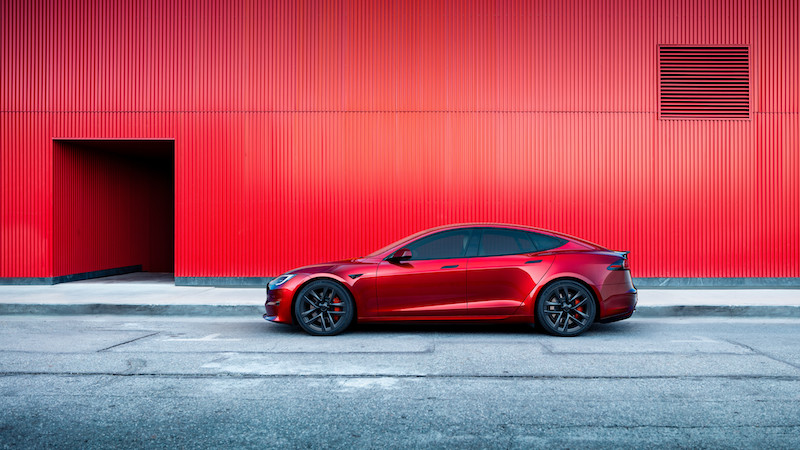In the summer of 2022, the consumer protection agency had filed a lawsuit against Tesla because the so-called “guard mode” violated data protection law. The Berlin Regional Court has now ruled in favour of the consumer advocates. The background.
In the summer of 2022, the Federation of German Consumer Organisations (VZBV) filed a lawsuit against Tesla. According to the association, the activated so-called “guard mode” of the vehicles violates data protection law. Tesla drivers would not have the opportunity to obtain the consent of passers-by for the camera images.
The Berlin Regional Court has now ruled in favour of the VZBV on this point. The e-car manufacturer must therefore change its advertising for the surrounding cameras in future.
“Guardian Mode”: Use not possible without data protection violation
According to the consumer organisation VZBV, Tesla has signed the cease-and-desist declaration demanded by the consumer advocates after the oral hearing at the Berlin Regional Court. “Camera surveillance of third parties without their knowledge, that’s not possible” said Ramona Pop, executive director of the VZBV. She added:
Consumers could not use Tesla’s guardian mode without massive data protection violations. They risked a fine if the mode was activated. However, this information was missing from the advertisements for the Guardian mode.
Tesla adjusts notice for “guardian mode” in user manual
Since the ruling, the e-car manufacturer warns its customers about the “Guardian Mode” in the user manual on the German Tesla website. “You alone are responsible for checking and complying with all locally applicable regulations and property reservations with regard to the use of cameras,” it says.
However, it remains to be seen whether vehicle owners will do without the “guard mode” in the future. Basically, the function is supposed to protect against theft. Therefore, the vehicles are equipped with cameras that record the surroundings of the cars. The recorded camera images can also be accessed via smartphone.
Lawsuit over CO2 emissions failed
At the same time, the VZBV also sued for misleading advertising on CO2 emissions when buying a Tesla. However, the Berlin Regional Court rejected this claim.
The consumer advocates had accused the US car manufacturer of stating the CO2 emissions of its vehicles as zero grams. At the same time, they pointed out that the company sells CO2 certificates to other carmakers, which in turn could increase their emissions.
In this point, however, the regional court did not see any misleading of consumers, said Ramona Pop. However, the VZBV will appeal against the judgement.










